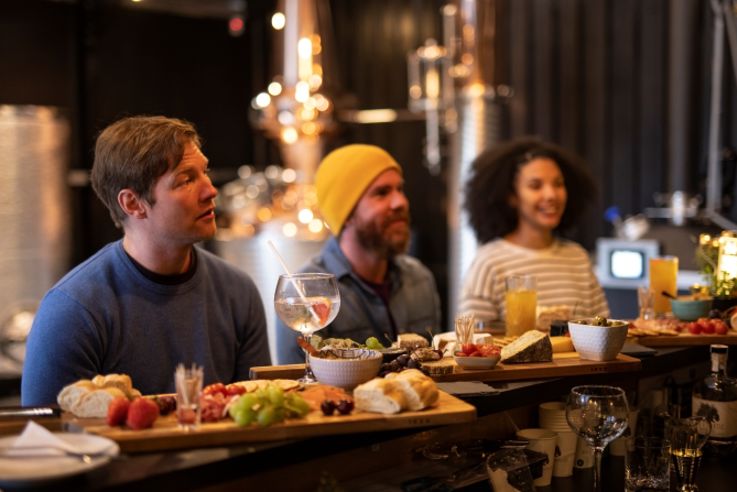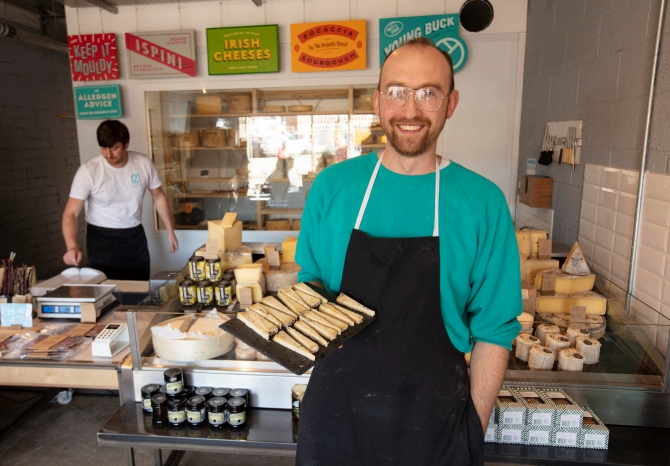- Guiding/working with tourists/visitors ranging from walking tours, coach tours, boat tours to large scale events.
- MICE groups, some often requiring simultaneous interpreting in languages on food and drink. An extensive foreign vocabulary set is very important here in terms of description of gins, whiskies etc. and having previous knowledge of the correct vocabulary offers a more enriching experience for foreign clients.
- information trips: journalists, bloggers, vloggers and influencers. TV food programmes
- Familiarisation trips where industry buyer clients sample the country via tours, activities, food and drink sampling, drinking and dining.
Contents
- Wildlife Tour Guiding
- Who Do They Think They Are: Family History Tours
- Global Trends Local Solutions for Tourist Guides
- Food & Drink Tours
- Global Best Practice for Tour Guides
- Why Tour Guides Should Consider Cruise Ship Opportunities in the New Normal?
- 4 Key Considerations for Tour Guide Recovery
- (Post) Pandemic Trends in Tourism – Opportunities for Tourist Guides
- Northern Ireland Tourist Guides “Good to Go”: Recipe for Recovery
- Northern Ireland - Embrace a Giant Spirit
- Northern Ireland Tourist Guides “Good to Go”: Innovations
- Get involved in our digital and social media channels
- NITGA predicts tour guiding opportunities for 2021 & beyond
Contents
- Wildlife Tour Guiding
- Who Do They Think They Are: Family History Tours
- Global Trends Local Solutions for Tourist Guides
- Food & Drink Tours
- Global Best Practice for Tour Guides
- Why Tour Guides Should Consider Cruise Ship Opportunities in the New Normal?
- 4 Key Considerations for Tour Guide Recovery
- (Post) Pandemic Trends in Tourism – Opportunities for Tourist Guides
- Northern Ireland Tourist Guides “Good to Go”: Recipe for Recovery
- Northern Ireland - Embrace a Giant Spirit
- Northern Ireland Tourist Guides “Good to Go”: Innovations
- Get involved in our digital and social media channels
- NITGA predicts tour guiding opportunities for 2021 & beyond
Food & Drink Tours Business Opportunities

To start off, you obviously need a pool or network of suppliers who can provide quality tastings on budget, regularly, on time and often at short notice. The supplier must be able to guarantee a product or, in emergency, one of equal value and provenance. Suppliers should also be prepared to offer ‘dietary’ alternatives if clients have flagged these up - very important! It takes time to build this relationship up.
You might have a pool of say, eight, but only use five on the day or half day tour. This allows for flexibility when planning and variety in what you offer.
By all means have a ‘street food element’ to your tours if you wish but consider the country’s climate and comfort of clients during the tour. Indoor stops can be as useful as the tasting (a seat, local colour, toilets)!
NI Food & Drink Offerings
You might want to offer:
- Pubs selling traditional drinks e.g. Wicklow Stout - Irish classic - Stout and Carlingford Oysters
- Cake makers - Barmbrack and a glass of cider
- Biscuit shops- organic, locally sourced ingredients.
- Cheesemongers - whilst still relatively young as an industry, NI has a superb array of artisan. Discover Northern Ireland's cheese makers here.
- Restaurants of all scales, outwith normal service times- a drink and samples of classic and contemporary foods.
- Distilleries with restaurants who can offer paired evening dinners, each course accompanied by whiskies of increasing grandeur!
- Northern Irish Gin - (e.g. Boatyard Distillery) just as in Britain containing botanicals and other ingredients from NI for products reflecting a sense of place or ‘milieu’. You shouldn’t underestimate the importance of this, particularly for Europeans.

Considerations
Clients sophisticated enough to do a food and drink tour will be expecting not only quality and tasty produce but will also expect a back story or sense of provenance which contextualizes the food in a social and historical sense.
Obvious as this might sound you need to keep a close eye on budgets as well as focusing on sourcing high quality produce, be it cheese, gin, beer, shellfish and so forth. Small businesses who promote niche products, perhaps harder to source than others, can give a sense of cachet to products, enhancing the clients’ experience.
It would be a disservice to the food and beverage producers to simply focus on exclusively ‘traditional’ products, as gastronomy must be seen as a dynamic phenomenon that is always changing, often for the better! Food and drink are very important to the economy.
Northern Irish food is evolving and improving all the time, and it is often with a nod to the past but an eye on the future with inventive cooking and food production. Much of this has happened over the past ten years and is due to people travelling abroad more, bringing gastronomic influences back and incorporating them into food culture. In this way you can fulfil client expectations but also challenge preconceptions. You should not be averse to offering ‘new’ elements from food culture
Have a look at what is already out there – can you think of something to add or can you use ideas to develop your own tours – use other’s experience to help you develop your own unique selling points. Browse Food & Drink Tours currently listed on Discover NI.
Ideas for Food and Drink Tours
Examples of Successful Tours
Gavin Hunter is a qualified Blue Badge Scottish Tourist Guide with a special interest in conducting food and drink tours which really began after lecturing trainee Blue Badge Guides on Food and Drink in Scotland and then completing an MSc in Gastronomy, focusing for a large part on Scottish food culture and its history.
Examples of successful Tours led by Gavin
- On a ‘doors open day’ buildings and locations were used as a means for talking about food and drink e.g. linking to historical events, personalities, writers and the current scene.
- Airport transfers: a Red Routemaster bus with gins, tonics and snacks served during an orientation of Edinburgh en route to the first stop of tour/hotel.
- Combine multiple activities – Morning, a hat/fascinator making session with qualified milliner. Afternoon, off to the races for either lunch or afternoon tea with bets on the races.
- Highlands whisky tasting tour, sheep dog demonstration followed by afternoon tea on a steam train evoking past glories of the steam age.
- Visit shellfish producers/smokehouses- oysters, lobster, crab - channel your country’s age-old relationship with seafood.
- Familiarisation trip exclusively Food and Drink orientated for government tourism bodies. Glengoyne Distillery, Loch Lomond Smokehouse, Seafood lunch at Loch Fyne Oyster Bar. Glengoyne offers tours up to Malt Master- customise/mix your own single malt experience.
- Special interest group - “restaurant chefs” from a large company-excursion by boat from Edinburgh across the River Forth estuary to St Monans- tasting at a smokery/fish cafe - lobster, crab, smoked fish. Next a visit at an award-winning Fife cheese producer- samples and a short orientation talk. A farm visit where organic farming is used and chefs made aware of benefits/advantages. Distillery visit then home by novel transport : train via scenic route. In our case crossing the iconic Forth Rail Bridge en route back to Edinburgh.
- South East Scotland. Fishing with rods from boats, catching fish and eating same. Lobster and chips lunch in local seafood bar.
- Specialist steak barn- high quality steak and chips, followed by a seafood/fish bar, Craft brewery tour and train home.
- Cookery school visits - classic shortbread made by clients after basic instruction and then eaten with full afternoon tea experience.
- Clients from Americas made proper, traditional Cullen skink soup.
- Corporate and incentive groups - Pampered Chef/Thermomix groups - focus on food was core.
- Beer and whisky sampling/tastings are a common feature of many tours but there are also specialist food and drink tastings such as whisky with cheese, chocolate and seafood (not all at the same time!) I attended one of the latter held in iconic 18th C vaults in Edinburgh’s port of Leith.
Certification
The World Federation of Tourist Guide Associations (WFTGA) works with the World Food Travel Organisation to provide a certification for qualified guides who wish to specialize in culinary tours.
In the end it’s all about having fun, sharing food culture, history and good food and drink. Bon appétit!